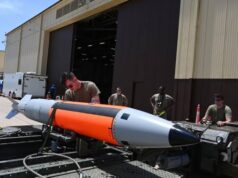China is supplying Pakistan with dreaded chemicals for use against civilians in occupied Balochistan

The Austrian Intelligence Department recently released a report for year 2023 reviewing the global security scenario. The report emphasised on China’s role in sourcing dual-use goods for Pakistan through fake companies and dealer networks. It said China occupies a special position in global proliferation. China acted as a global buyer for sanctioned states in the European market and Austria.
A similar report by Germany’s Federal Office highlights illegal procurement efforts by countries like Pakistan, Iran, North Korea and Syria, involving bypass countries like China and Turkey. As per this report, Under the leadership of China, working closely together in the area of proliferation. North Korea, Syria and Pakistan, countries that also show efforts to proliferate weapons of mass destruction, are part of this new alliance. However, they play a subordinate role in the position of supplier. China acts as a global buyer to circumvent the Western sanctions imposed on Russia, Iran, North Korea and partly on Pakistan.
This year in May, Indian customs authorities at the Kattupalli port in Tamil Nadu based on intelligence inputs, seized a consignment shipped by Chengdu Shichen Trading Company Ltd, a Chinese firm, to Rohail Enterprises in Pakistan. It was the chemical Ortho-Chloro Benzylidene Malononitrile (CS), being carried by the vessel Hyundai Shanghai (sailing under the Cyprus flag) from Shanghai to Karachi.
CS gas, while commonly used in riot control, is regulated due to its potential use as a chemical weapon. Its dual-use (civilian and military) nature makes it particularly sensitive under the Chemical Weapons Convention and the Wassenaar Arrangement.
The seizure of the CS consignment highlights China’s role in the global proliferation network. Beijing has had a history of producing dual-use technologies that, while ostensibly for civilian use, can be repurposed for military applications. This is particularly concerning given China’s penchant to bypass international regulations and export controls.
The most shocking aspect of the seizure and the investigation that followed is the banned chemical’s potential to be used against Baloch Freedom Fighters by Pakistani law enforcement agencies.
The covert supply indicates China’s move to safeguard its interests in Pakistan Occupied Balochistan, which has major infrastructure of the China-Pakistan Economic Corridor (CPEC). Several CPEC projects in the region face opposition from local Liberation groups, with several incidents reported in the recent past.
The CS consignment issue has also raised a pertinent question about how China bypasses laws to dump banned items into Occupied Balochistan and acts as a key player in global proliferation networks, particularly for sanctioned states. The incident reveals the extent of China-Pakistan cooperation, especially in the realm of security and counterinsurgency. It also points to China’s willingness to support the Pakistani law enforcement apparatus even if that means supplying controlled or banned substances.
Multiple European and US agencies are closely monitoring dual-use technology trading by China and Pakistan. One of the incidents is of Ilya Kahn, a tri-national resident of Brooklyn and Los Angeles who was arrested for a long-term scheme involving the illegal export of semiconductors from the US to sanctioned Russian military-linked businesses by utilising a network of companies in China and elsewhere.
In April this year, the US announced sanctions against three Chinese and Belarusian companies allegedly supplying missile technology to Pakistan. China is the main supplier of weapons and defence equipment for Pakistan’s military modernisation programme.
Pakistan traditionally maintains good relations with China and often relies on front companies and dealer networks on the Arabian Peninsula for procurement of dual-use goods from Europe. China became an even-more important trading partner for Pakistan in this segment in 2023.
The Austrian report added that Pakistan’s proliferation attempts are increasingly being carried out via intermediaries in China. This approach makes it more difficult to combat proliferation as China itself is not sanctioned and the intermediaries to whom Austrian companies supply are usually civilian companies. The passing on of exported goods by the intermediaries is usually no longer subject to de facto control by Austrian exporters. China is thus becoming the global hub for sanctioned goods.
One example of this is microchips, which aren’t essential for the Russian military industry alone. Since the Russian Federation does not have any significant chip production, it is dependent on foreign countries. According to open sources, the country managed to import sanctioned microchips worth more than $500 million via China, and in particular the Hong Kong Special Administrative Region. As customs data shows, some of the imported goods come from the production of a German chip manufacturer that also operates a subsidiary in Austria.
“Particularly in dual-use technologies, China is making goods originally developed for commercial purposes usable for military purposes. In this context, even supposedly harmless research collaborations or ‘joint ventures’ between China and Austria represent a proliferation risk that cannot be ignored,” the Austrian report pointed out.




